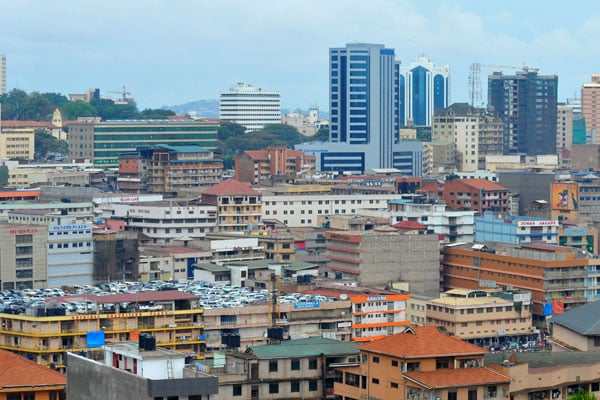Prime
2023: Uganda’s descent into madness

Senior presidential advisor on Special Operations Muhoozi Kainerugaba (centre) and KCCA boss Dorothy Kisaka (right) assess progress of road maintenance works being carried out by SFC this week. PHOTO/ COURTESY OF KCCA
As we enter the final weeks of the year, time to start reflecting on what 2023 has meant for Uganda.
By and large, it has been an exhausting year for the country. Many roads in the capital city Kampala for some reason fell apart at the same time.
Along with the deteriorating state of the roads went the entire set of rules that govern traffic. The red, green, and orange traffic lights became irrelevant, as did the rule about keeping left.
Impunity by government officials or persons close to the ruling NRM government continued to multiply, as President Museveni’s ability to bring indiscipline under continued to dwindle. Government officials who came out as whistle-blowers and alerted the public and government about abuses of power and resources were often sacked rather than rewarded.
Sarah Kityo, President of the Uganda Netball Federation, who reported to the Inspector General of Government corruption at the National Council of Sports, was dismissed from her job.
Many among Uganda’s middle class on trips abroad often praised the infrastructure in other countries, only to return to Uganda and, puzzlingly praise the NRM government that oversees Uganda’s disorganisation and poor infrastructure.
In all this, President Museveni will not admit to failure.
For years, his government and he blamed the chaos in Kampala on the fact that the city was in the hands of mayors affiliated with the Opposition Democratic Party.
A new agency, Kampala Capital City Authority (KCCA) was created to rescue Kampala from the Opposition and was made part of the Office of the President. The overcrowdedness, disorder, motorcycle chaos, poor drainage, and uncollected garbage have remained and, in some instances, got worse.
As the country becomes more and more chaotic and mired in misrule, the President creates more and more agencies to address it.
The solution, he feels, is to turn State House as, effectively, a government within a government.
So in 2023, the presidential guard and UPDF’s Special Forces Command (SFC), was put in charge of fixing Kampala’s roads.
Now there’s a new agency at State House called the State House Investors Protection Unit.
One would think that police’s Criminal Investigations Directorate (CID), Internal Security Organisation (ISO), Inspectorate of Government (IGG), and other government agencies whose heads were directly appointed by the President, that would be enough.
These units based at State House are an unwitting admission by President Museveni that he is simply no longer able to impose his authority on his own government and appointees.
The flouting of established rules and norms was the order of the day across Ugandan society, into grammar and spelling.
A generation of Ugandans is now in the mainstream white-collar workforce, that does not even know that formal titles like Col, Dr, Justice, and Prof go with the surname, not the first name.
Public officials are called ‘Professor David’, ‘Dr Susan’, and ‘Brig Stephen” in Uganda these days. There is also the habit of adding an H to female names, i.e., Stellah, Aniah, Fionah.
It is going to take a gigantic amount of work and effort to return this debased Ugandan society to a condition in which rules, laws, and norms are once again respected without question.





